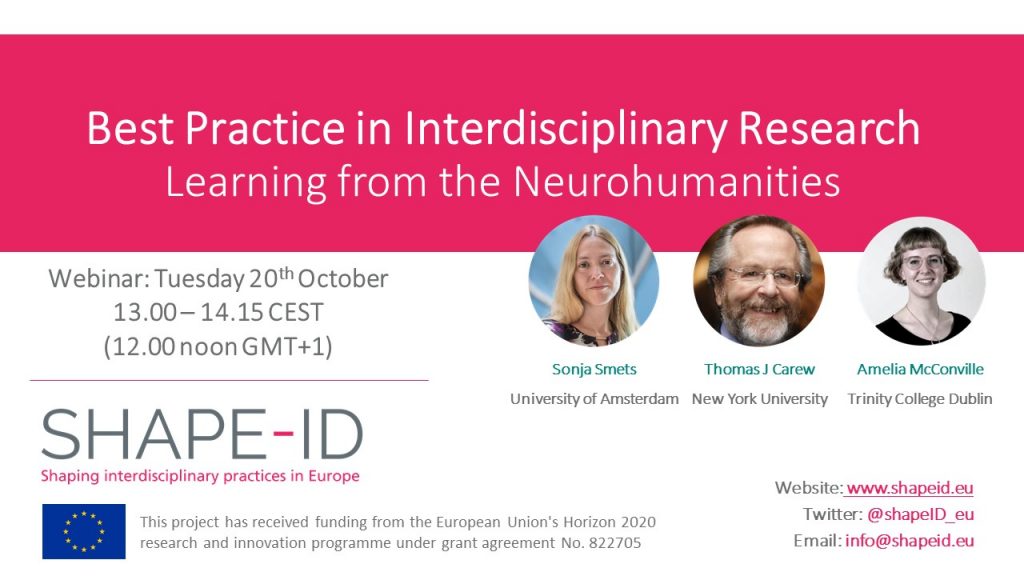This webinar on Tuesday 20th October 13.00 – 14.15 CEST (12.00 – 13.15 GMT+1) will be the third in a series of conferences on the integration of the arts, humanities and social sciences in inter- and transdisciplinary research.
The full programme can be viewed here.
What can the experiences of researchers working in the emerging area of the Neurohumanities teach us about the challenges and potential of interdisciplinary research between the Arts and Humanities and STEM disciplines? Why engage in such research and how are researchers navigating the significant distances between their respective disciplines? This webinar will invite researchers working in the Neurohumanities to discuss best practices in interdisciplinary research from the perspective of their own experiences working at the interface of the Arts and Humanities and Neurosciences. The case studies will showcase the potential for interdisciplinary research with meaningful roles for Arts and Humanities researchers and inspire researchers to learn about and engage with interdisciplinarity. Professor Jane Ohlmeyer, Principal Investigator of the SHAPE-ID project, Director of the Trinity Long Room Hub and Chair of the Irish Research Council, will chair the discussion.

